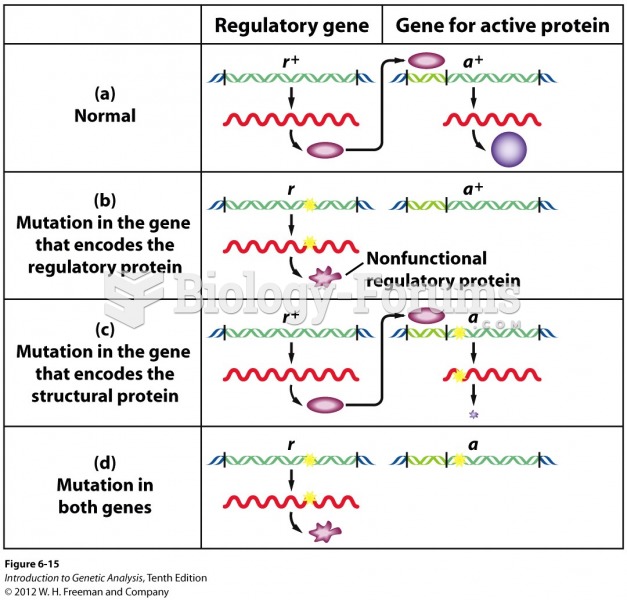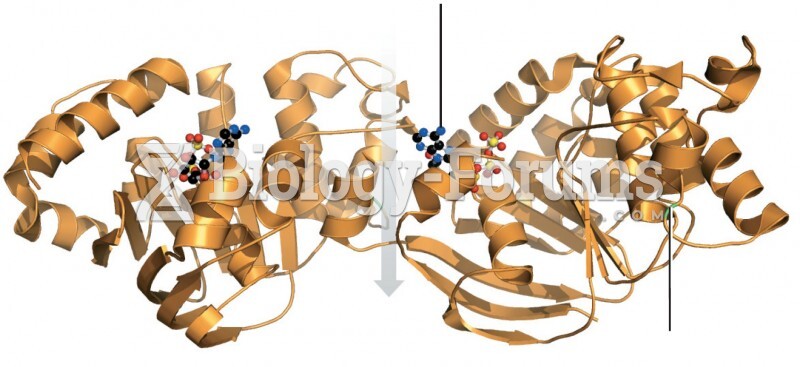|
|
|
In the United States, congenital cytomegalovirus causes one child to become disabled almost every hour. CMV is the leading preventable viral cause of development disability in newborns. These disabilities include hearing or vision loss, and cerebral palsy.
As many as 20% of Americans have been infected by the fungus known as Histoplasmosis. While most people are asymptomatic or only have slight symptoms, infection can progress to a rapid and potentially fatal superinfection.
Symptoms of kidney problems include a loss of appetite, back pain (which may be sudden and intense), chills, abdominal pain, fluid retention, nausea, the urge to urinate, vomiting, and fever.
The highest suicide rate in the United States is among people ages 65 years and older. Almost 15% of people in this age group commit suicide every year.
The average human gut is home to perhaps 500 to 1,000 different species of bacteria.
 Establishing a caring and trusting relationship helps the client come to terms with a terminal illne
Establishing a caring and trusting relationship helps the client come to terms with a terminal illne
 The ras proto-oncogene encodes a signal-transduction protein that processes signals for cell divisio
The ras proto-oncogene encodes a signal-transduction protein that processes signals for cell divisio





